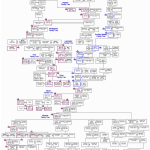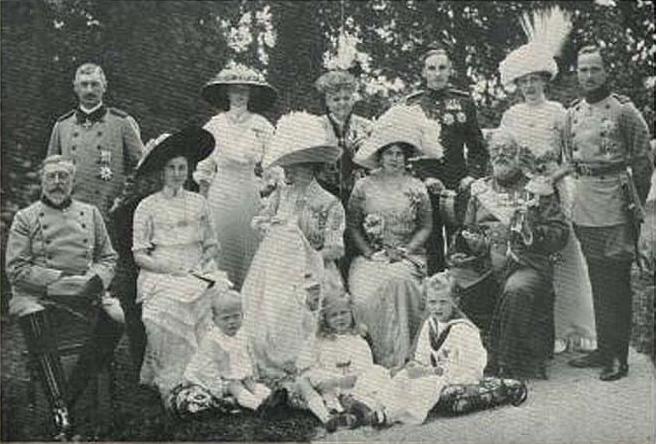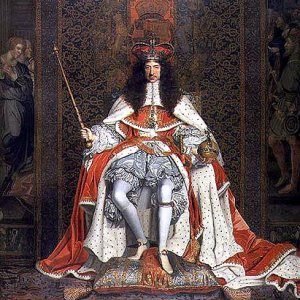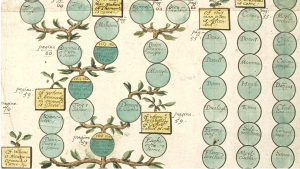Recently a friend with no interest in genealogy (a “civilian”, to use the technical term) started sending me screenshots and links from the “British Royal Family History” website. He spent his early years in an English primary school and I sniff resurfacing imperial indoctrination.

The pretext for sending them is awe at the sheer scale of the trees, but also at the legitimacy implied in that unbroken line of inheritance. Hmm. As a card-carrying Irish peasant begrudger, I can’t help noticing all the little gaps and hiccups. William the Conqueror sits there beneath the Anglo-Saxon Aelfreds and Ethelreds with no family connection whatsoever. I suppose the clue lies in the “Conqueror” bit.
William’s descendants, in-laws and distant cousins slaughtered, invaded and usurped each other for many’s the happy century thereafter. I particularly like the way James I cunningly got one of his great-grandfathers to marry the sister of Henry II, thus scooping the throne a century later.
But the grand prize for rebranding must go to the “Glorious Revolution”. Because the royal inheritance lottery had thrown up a prize they disliked, the entirely dislikeable James II, the Great and Good of England ignored the rules of inheritance and ultimately slipped the monarchy to a biddable, non-English-speaking, minor German toff, George I, whose only claim was one Scottish granny. Hence the current lot, the Glorious Saxe-Coburg-Gothas of London and Netflix.

So the secret to passing on the crown appears to be judicious cousin marriage. I imagine being able to keep a straight face when talking about the divine right of kings wouldn’t hurt either. Have a look at some of the alternative, equally legitimate claimants.

Fun as it is to jeer at the neighbours, we have our own pedigree problem.
Where the Brits have only had (more or less) one royal family, we had hundreds of the damn things. Early medieval Ireland was plagued with dozens upon dozens of shifting little statelets, tuatha, each with its own elaborate aristocracy and royalty. Many of their boundaries were mapped by the English later, but they had problems describing them. They couldn’t be kingdoms, because that would make them equivalent to their own yoke across the Irish Sea. A few levels down the pecking order were Norman barons, consiglieri rather than capo di tutti capi, so they were picked as an equivalent for Irish kingdoms. The tuatha became baronies. Let’s be clear: as geographic entities, baronies exist nowhere outside Ireland and have no barons.
 Having to keep track of so many aristocratic pedigrees propelled genealogists into the front rank of medieval Irish society (ahem) but also meant that huge numbers of people could claim royal descent. And they did, loudly and often. One of the Anglo-Irish stereotypes of the peasant Gaels was that every labourer in the field claimed to be descended from princes and kings. In truth, many were. And of course, many weren’t, because most of the traditional genealogies were packed with convenient political lies. A bit like the Saxe-Coburg-Gothas.
Having to keep track of so many aristocratic pedigrees propelled genealogists into the front rank of medieval Irish society (ahem) but also meant that huge numbers of people could claim royal descent. And they did, loudly and often. One of the Anglo-Irish stereotypes of the peasant Gaels was that every labourer in the field claimed to be descended from princes and kings. In truth, many were. And of course, many weren’t, because most of the traditional genealogies were packed with convenient political lies. A bit like the Saxe-Coburg-Gothas.
Add in the fact that after forty generations, a thousand years or so, a direct descendant of William the Conqueror will on average share 0.0000000001% of William’s DNA and the moral is that impressive pedigrees mean diddly-squat. In the immortal words of the bogus McCarthy Mór, we all remain “ignoble and enjoy neither place, position, nor gentility”.
Long live begrudgery.
I do believe my 12th great-grandfather’s 2nd cousin was an illegitimate offspring of Aelfred. I have a notarized certificate to prove it. Robert Aelfred Blanford.
Me, too — we must be cousins!
Mary Buchholz, descendant of MORIARTY, HANNAN and McCarthy
Thank you, John, for a good lesson and a good laugh to go with it. Love your phrase “card-carrying Irish peasant begrudger “. Think I’d like a t-shirt with that motto. Clever as always—thanks again.
William the Conquerer’s Great Aunt was Emma of Normandy. She married Aethelred the Unready and her son was Edward the Confessor so there was a family connection however distant.
Love this. Thank you so much John
Reminds me of Adam Rutherford’s rant that everyone is descended form Charlemange (e.g. https://www.theguardian.com/science/commentisfree/2015/may/24/business-genetic-ancestry-charlemagne-adam-rutherford) because of limited population side an intermarriage.
Can we Irish claim the same descendancy from Niall of the 9 Hostages or some other fecund fella from the past?
Everybody who was anybody, and then some, claimed to be descended from Niall – think of that gene! There’s even a Facebook group …
Aren’t we all descendants of Brian Boru? Or is it just the ÓBriains?
My family are direct descendants of the noble Shamrocks — but alas, upon arrival in America we dropped the sham ; )
I too believe it is futile chasing incredibly tiny inheritances in very distant famous people, but more importantly, it is very disrespectful to the many ordinary ancestors who struggled against tremendous odds to raise families and make our lives possible.
Going back just five generations, we have 32 ancestors, with up to 32 different surnames, and 31 of those names have been lost by female marriage. All of those ancestors contributed equally to our genetic inheritance, and some of them contributed far more than others to our existence today. I love uncovering those lost ancestors, especially the women, whose existence is often barely recorded.
You hear about A Most Recent Common Ancestor (MRCA) in genealogy, but there are always two of them because it takes two to tango.
Great comment! Here, here!
I struggle enough with the simple genealogical efforts let alone trying to uncover my pathway ( pastway??) to distant alleged royalty. My dad saw the typical published family “heritage” information ( very generic stuff, citing all the poets, princes and pirates of the name) and was convinced we were descended from kings of Sligo. He was long dead when I found we were of the Kerry line of O’Connors. He would be at the same time disappointed and intrigued, as I continue to be every time I uncover another clue to our distant past.
Did I ever tell you the story of my grandfather’s grandfather’s donkey..??..
That might be neat but the ultimate focus is finding out how my ancestors moved about. Did they START Living in Ireland or did they run TO Ireland. I would like to get the nuances of what directed them and what happened, whether the information be or bad. If it’s possible.
Thanks John! Great stuff, and witty, as usual!
Enjoyed your clever way of telling the truth with a chuckle.
I love this John. I’m descended from an Irishman and that is all that matters tome. He was a King in my eyes.
Thx! We need to be reminded!
I enjoyed that! It’s kind of like people who believe they had past lives. Most believe they were someone famous.
Wow! Bravo! Well written, not a wasted word.
I enjoy finding royal gateway ancestors if only for the pleasure of tracing more ancestors further back in time. It can be challenging to trace and document Medieval ancestors. But in general, I have little respect for these nobles and royals. Very few of them have any redeeming qualities. I think the French Revolution was a marvelous thing until at least the Reign of Terror. Certainly ending the monarchy and noble status were grand. I am a small “r” republican.
I do get a kick out of people who have found a royal ancestor in their family tree and think that makes them special. The truth is they probably have more gong farmers than nobles in their family tree.
Hello,
I am about 20% Irish (estimations from Ancestry and Family Tree DNA) and that piece from the north, County Tyrone, Irish ancestor as yet a mystery. A quick Google of the topic of Royal ancestry indicates that almost everyone in Europe is likely linked to a King from times gone by, see information from Adam Rutherford as mentioned earlier with statistics from mathematician Hannah Fry. If you consider how many children were conceived over each and many generations, poor ladies suffering so much, it’s not such a surprise. I echo Dermot Balson’s sentiments from January 29, 2024 at 8:57 pm. We’re all human and like to be special! Don’t be grumpy, we’re all family.